-
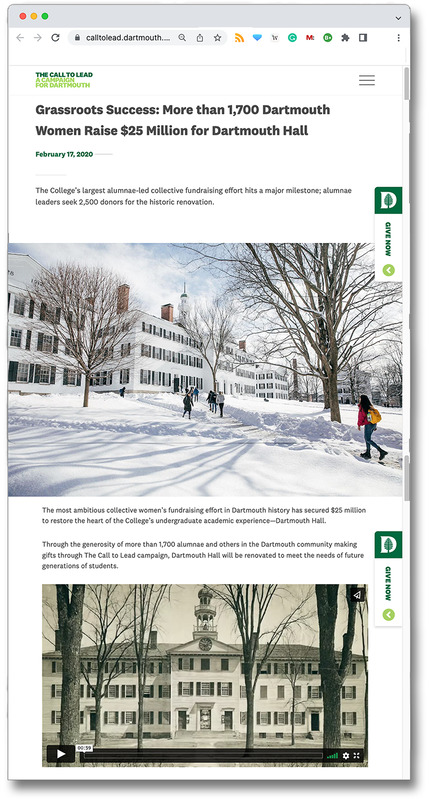
In an effort to restore and update the historic Dartmouth Hall, more than 1,700 Dartmouth alumnae raised $25 million for Dartmouth's Call to Lead Campaign. "Gifts ranged from $10 to $1 million and were received from members of every Dartmouth class from 1969 onward, including current undergraduates." February 17, 2020.
-
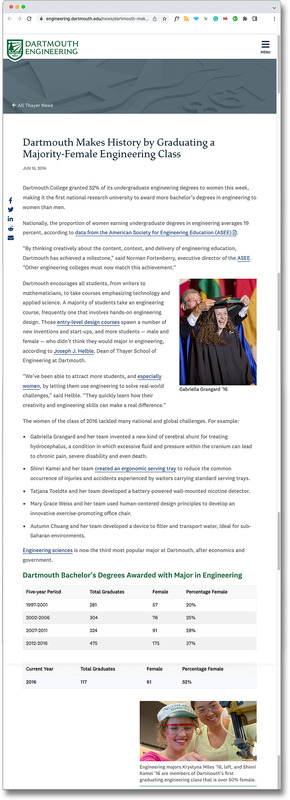
In 2016, for the first time in the school's history, the College "granted 52% of its undergraduate engineering degrees to women this week, making it the first national research university to award more bachelor's degrees in engineering to women than men."
-
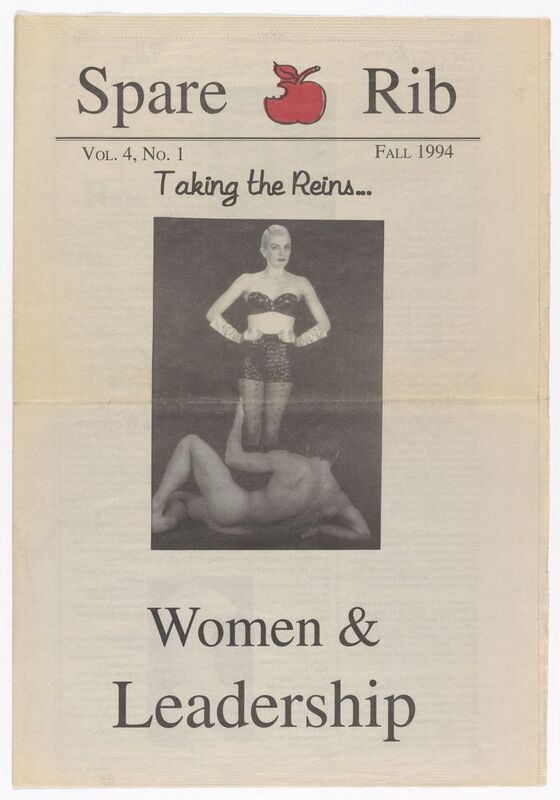
The 1990s at Dartmouth ushered in a new age of student publications focused on gender identity, sexuality, race, class, and feminism. One such publication, Spare Rib, described by its editors as "a manifestation of all that Dartmouth women have accomplished, the challenges that face us now, and the victories we hope to gain in the coming years," dedicated Volume 4, No. 1 to celebrating the progress women have made at Dartmouth since the beginning of coeducation and the culture of women leadership on campus.
-
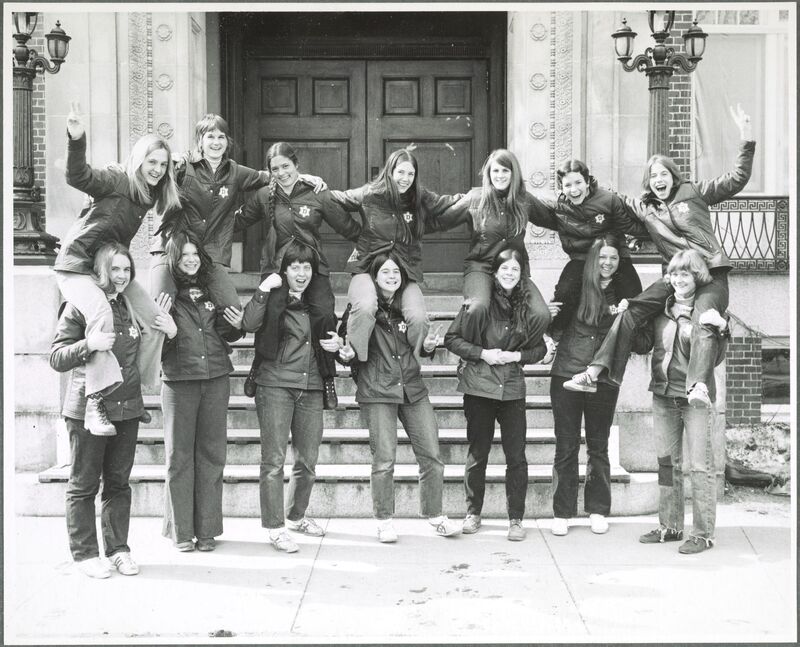
The 1974 Winter Carnival marked the beginning of a new era for women at Dartmouth. For 43 years prior, their participation in carnival events and activities was limited to being guests or dates of Dartmouth men. The Queen of Snows competition, a contest based purely on beauty was officially put to rest with the onset of coeducation. Seen here, the women’s carnival ski team, first of its kind, beat out 9 other teams to win carnival. In the seven years following coeducation, the women's athletics programs grew to include 12 varsity sports
-
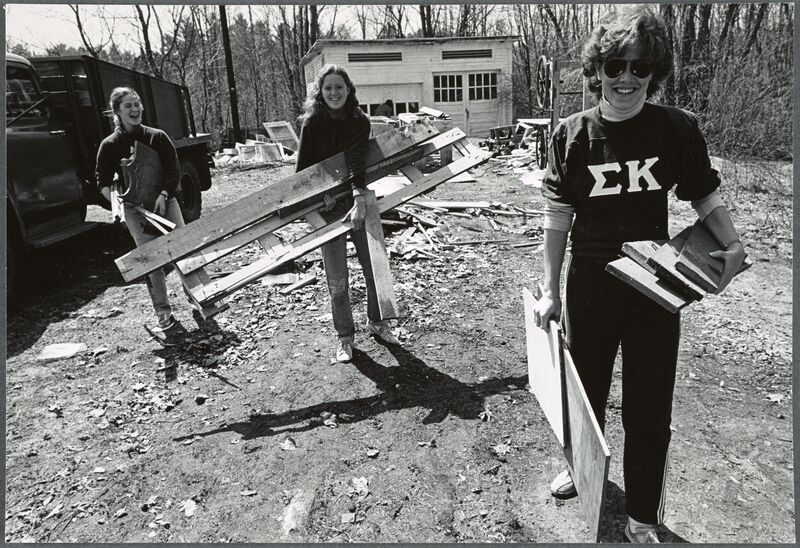
The Dartmouth chapter of the Sigma Kappa sorority was founded in 1977. Here members volunteer at the Opportunity Center in Canaan, NH. After coeducation but before the organization of Sigma Kappa, five fraternity houses (Foley House, Phi Tau, Phi Sigma Psi, and Alpha Theta) opened their membership to women. Today, there are eight active sororities on campus and three gender-inclusive houses.
-
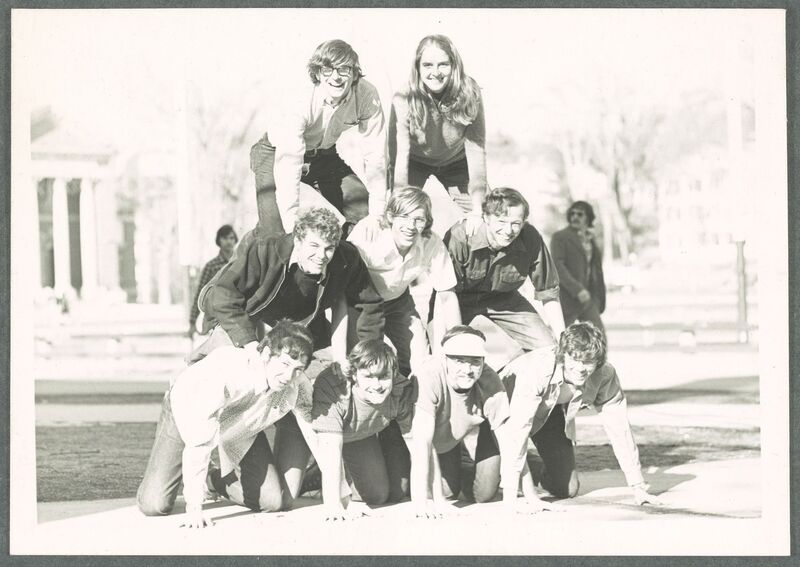
Elise Erler '76, Vice President of the Dartmouth Outing Club was the first woman elected to serve on the directorate.
-
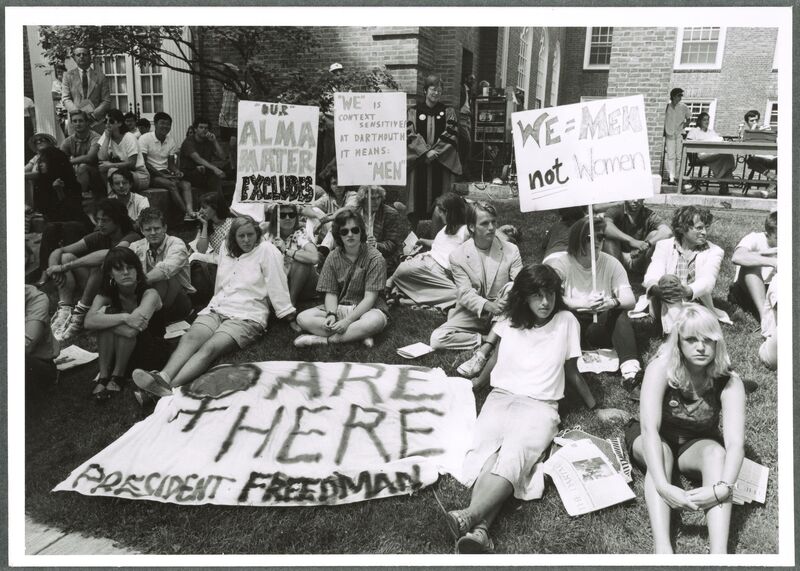
Students gather to protest the lyrics of Dartmouth's alma mater, "Men of Dartmouth." The song was criticized for excluding women from its lyrics and not accurately representing the Dartmouth community.
-
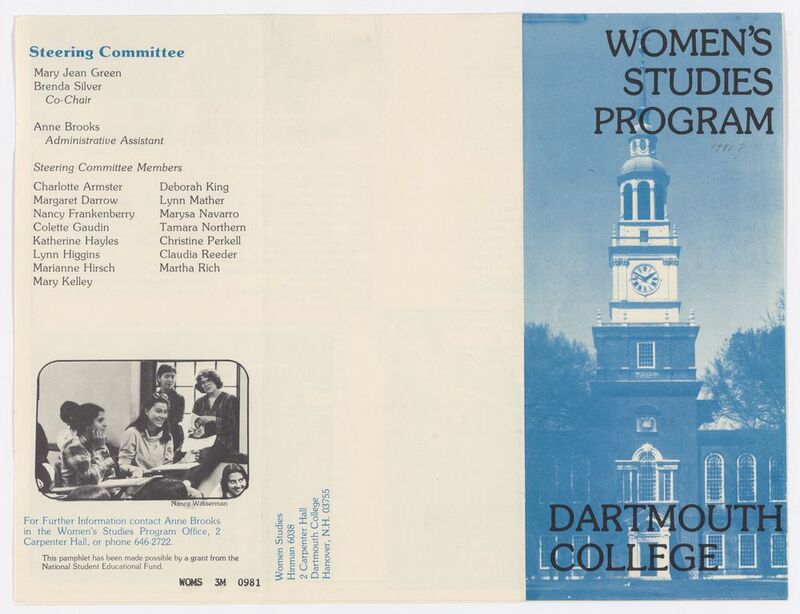
In 1978, by vote of the faculty, the Women's Studies Program was approved and the first course, Women Studies I: Introduction to Women Studies, was taught Spring of 1979. The program was "the first such program of any of the previously all-male Ivy League colleges." Today, The Women, Gender, and Sexuality Studies Program offers over 85 courses.
-
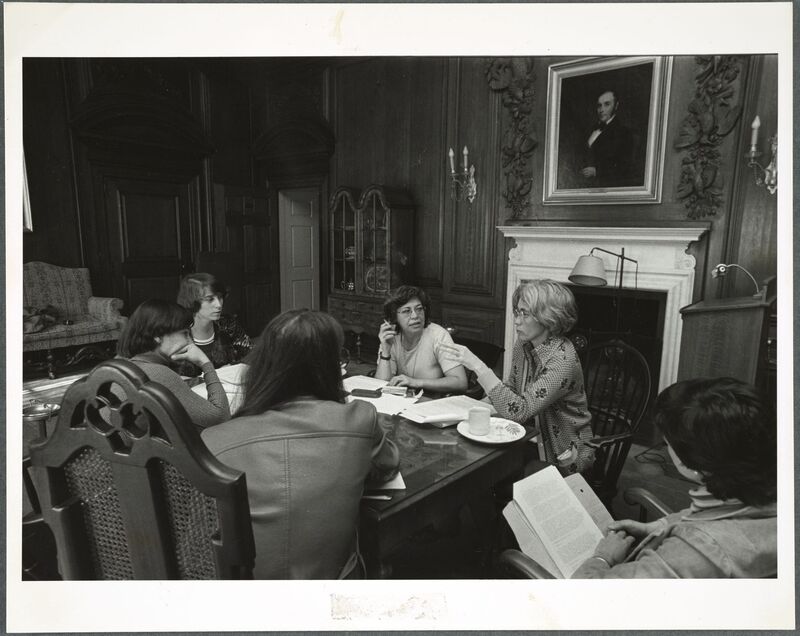
Lynn Higgens, Maryssa Navarro (center), Joan Smith and others meet to discuss the institution of the Women's Studies Program
-
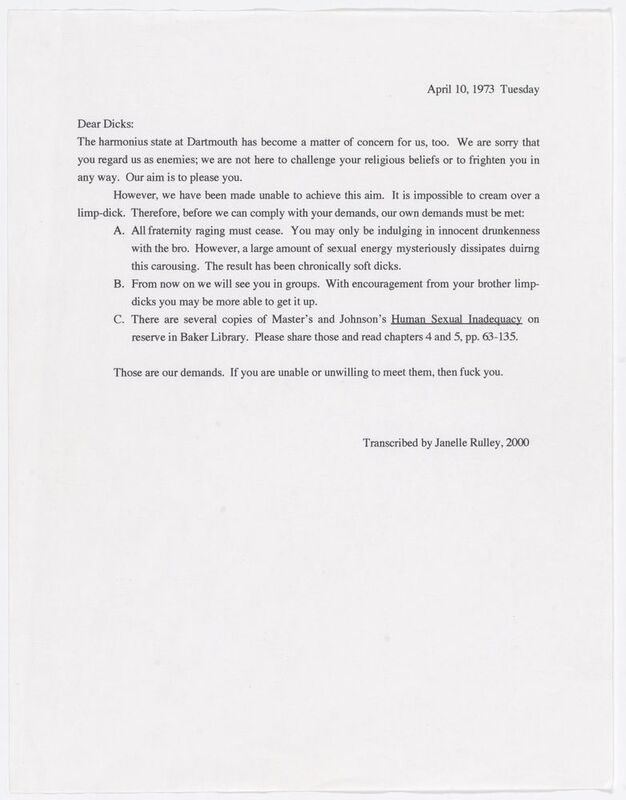
In response to the offensive letters shoved under the doors of women living in Woodward Hall (see case 3), an alternate list of demands was circulated in direct response. 1973
-
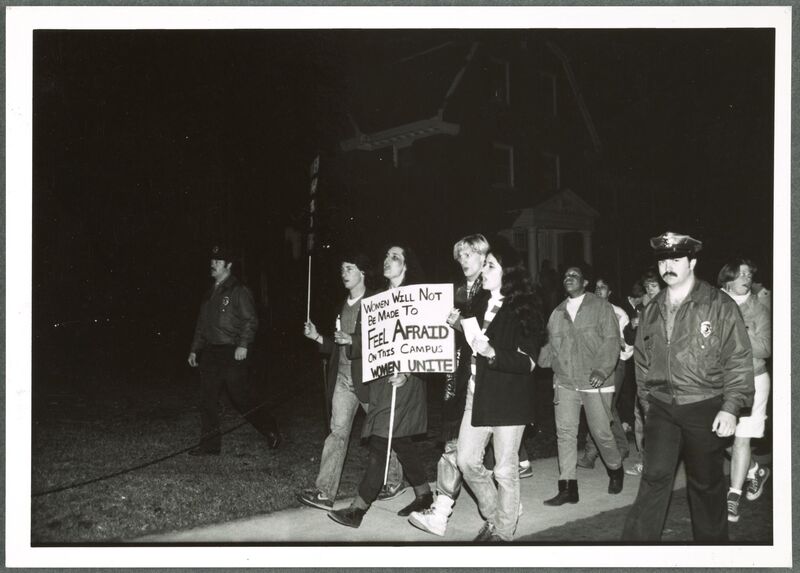
Photograph of students marching to stand up to the intimidation they experienced on campus
-
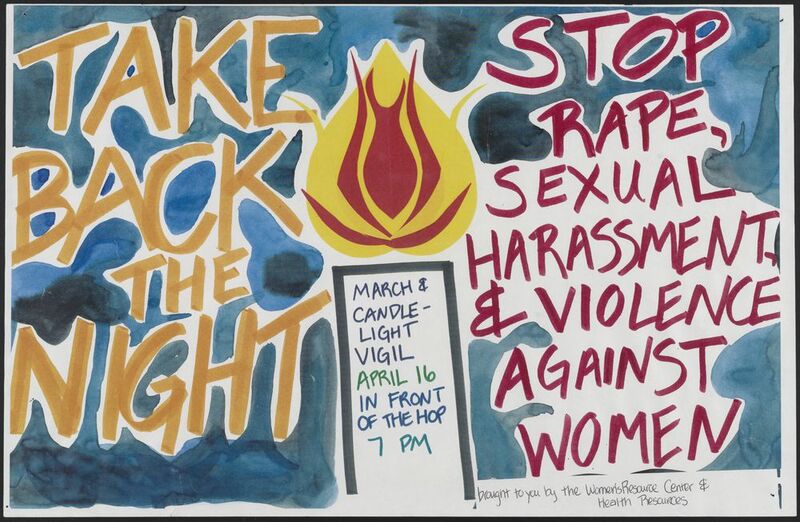
Take Back the Night started in the 1970s as a worldwide movement to bring awareness to and combat sexual violence and violence against women. The movement made its way to Dartmouth in the Spring of 1979 when approximately 200 members of the local and college community marched down Frat Row after dark. The location and time of day when the march took place are significant in symbolizing where and when women felt unsafe on campus.
-
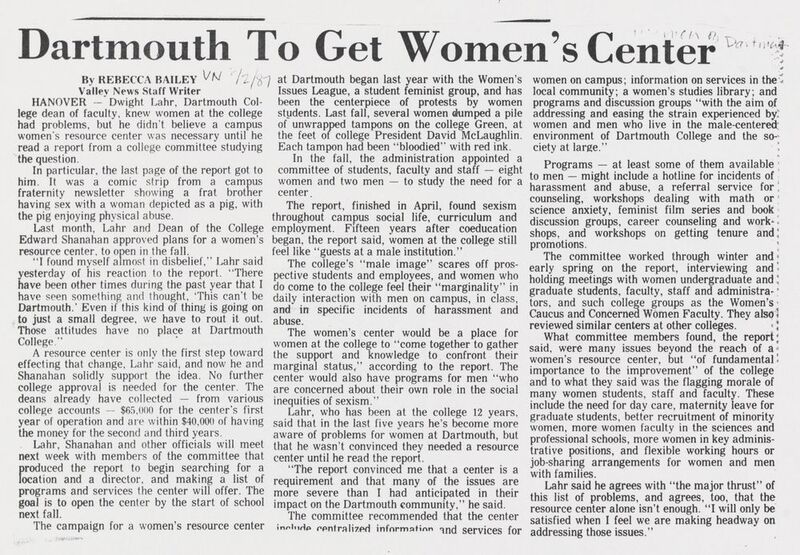
This article in Valley News reports on the College's decision to invest resources into a Women's Resource Center. The article quotes Dean of the Faculty Dwight Lahr as saying that he "knew women at the college had problems" but didn't know how bad it really was. The Women's Support Task Force shed light on some of the harassment women experienced, leaving the Dean in "disbelief."
-
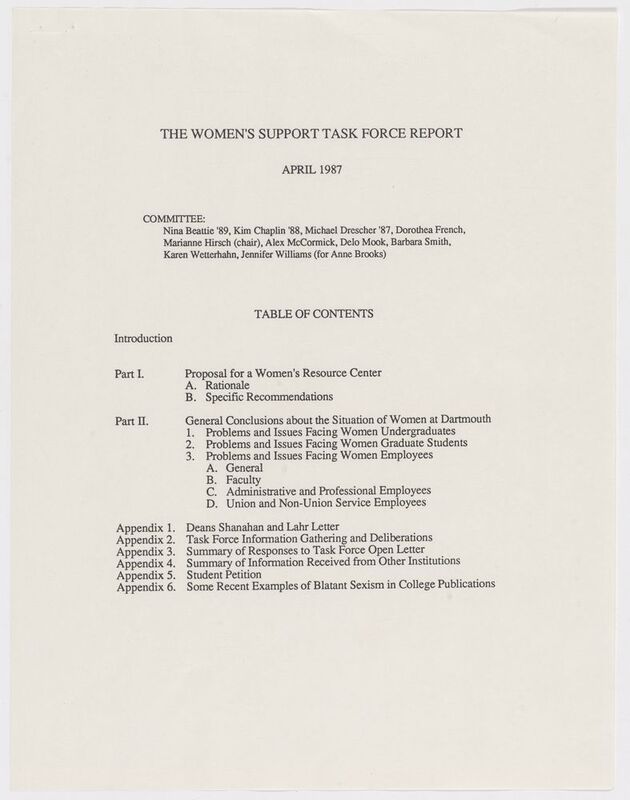
The campaign for a women's resource center started with calls by the Women's Issues League (third iteration of Women-at-Dartmouth), a student feminist group. WIL petitioned for a center that would "provide a space for all women students, faculty and staff to meet and exchange ideas about gender, women and women's experiences." Because of their petition, the College convened a Women's Support Task Force to review the proposal and evaluate whether or not a center was needed.
-
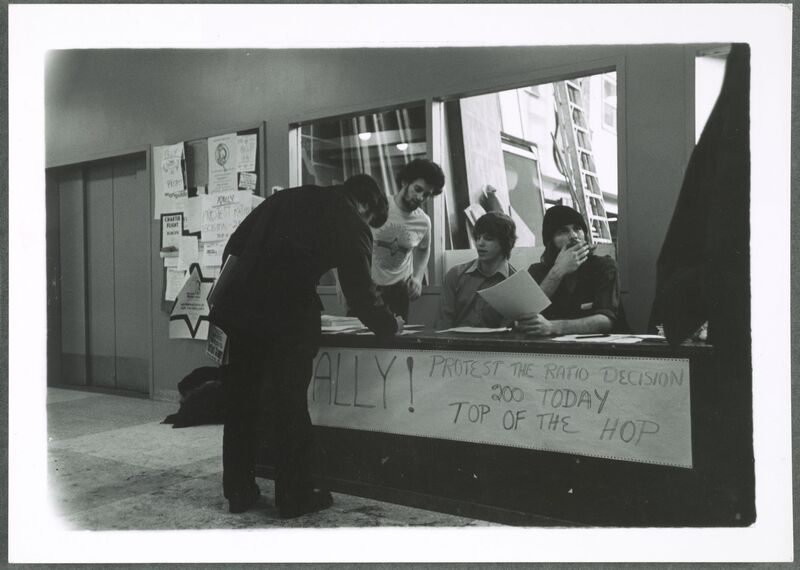
Students sign up for a rally in opposition to the College’s sex-ratio admissions practices. Both male and female students and alumni opposed the artificial policy as discriminatory. By 1980, the College had adopted a sex-blind admission process. However, it took until 2012 for the student body to reach an approximate 50/50 parity.
-
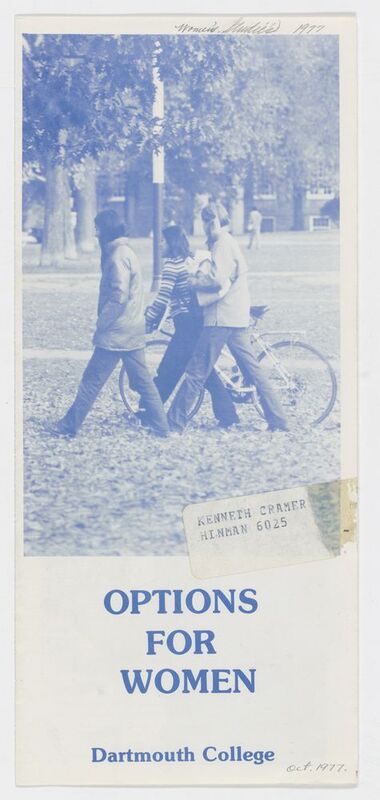
Informational pamphlet, summarizing health resources and social and athletic opportunities, music and cultural groups on campus, specifically for women.
-
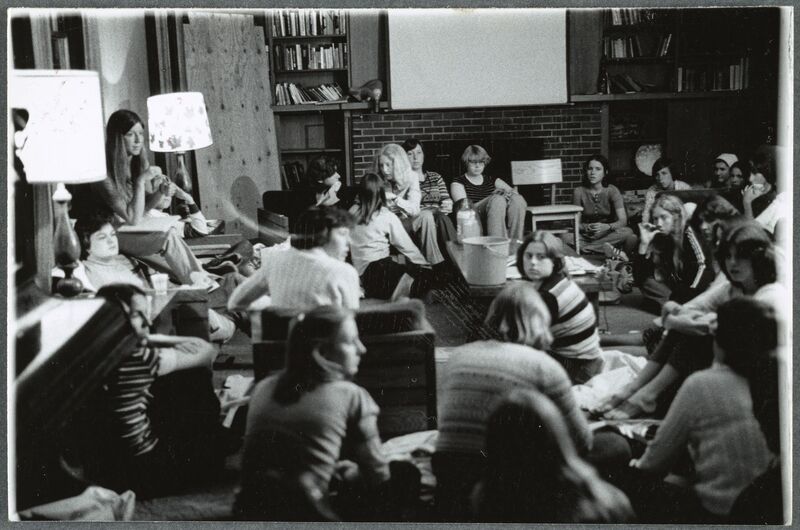
CB was another organization specific to women founded in the summer of 1977. CB offered women an alternative social space from the one sorority on campus at the time, Sigma Kappa.
-
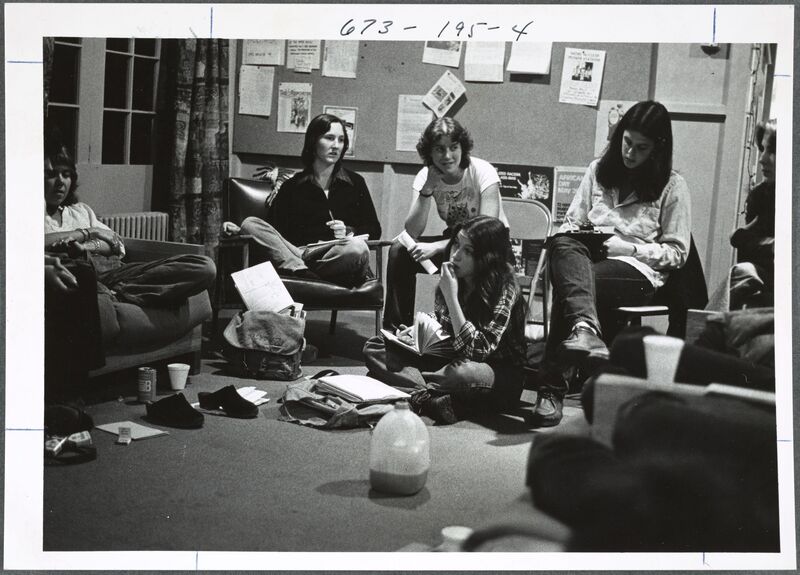
Women-at-Dartmouth was established in 1972 as the only feminist political group on campus. In 1979, the group changed its name to Dartmouth Women's Alliance in response to student criticism that the name didn't represent all women on campus.
-
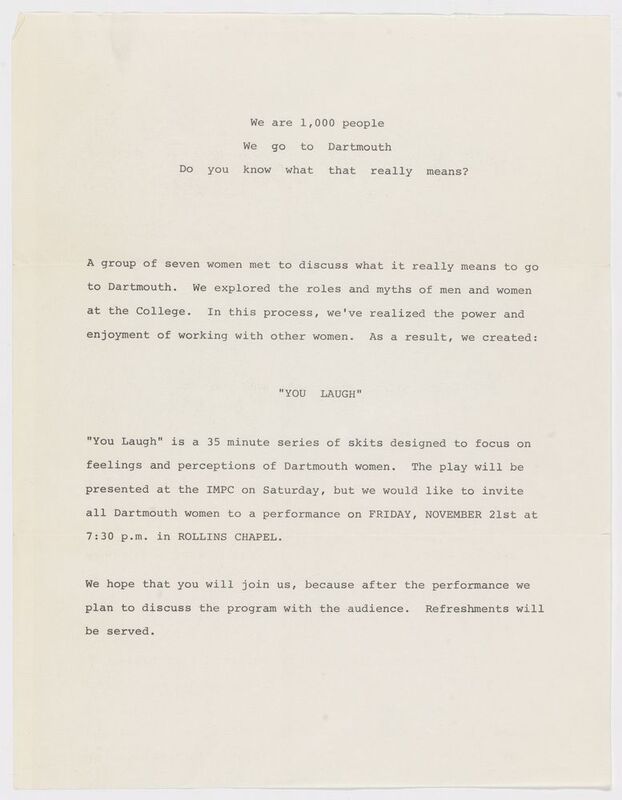
In 1975, a group of women students created a series of skits for a sociology class assignment. The series evolved into the student production “You Laugh” which was later performed at the inter-fraternity play contest. The production expressed what it was like being a woman at Dartmouth. The actors shared personal experiences of harassment, gender-based violence, and discrimination. Famously, in the opening skit, the actors recited back the misogynistic words of the infamous hum, “Our Cohogs,” which was performed by their classmates at Green-Key weekend earlier that spring.
-
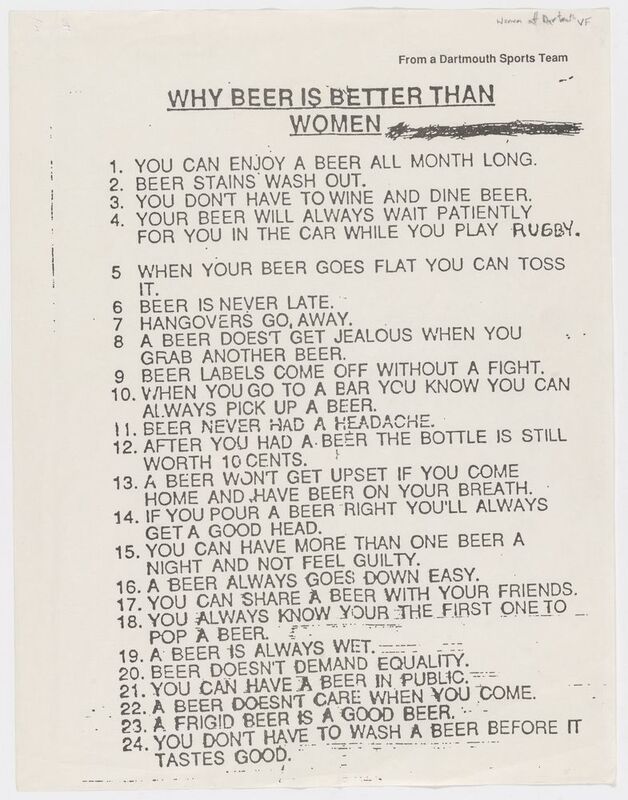
A Dartmouth sports team compares women to beer, listing 24 reasons why beer is better.
-
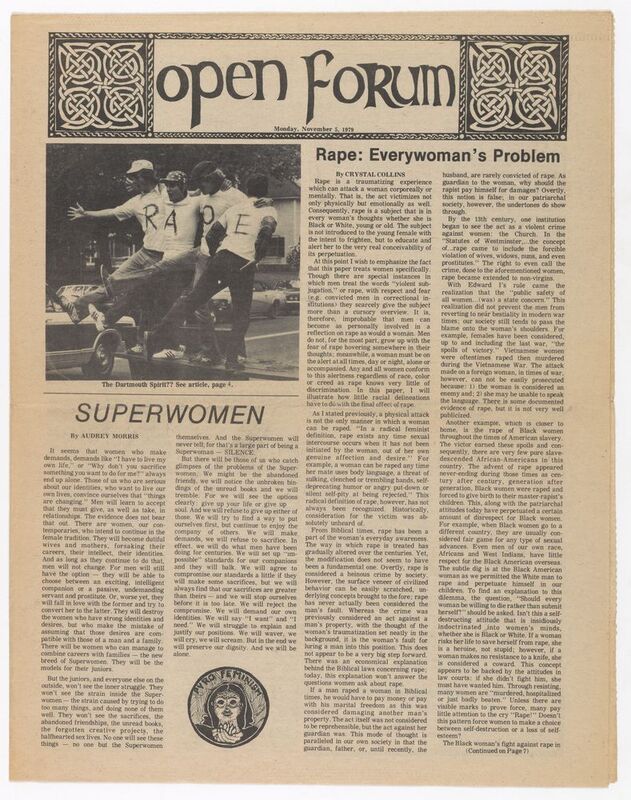
The student publication Open Forum focused on violence against women in its November 5, 1979 issue. The eight-page publication highlighted incidents of objectification, harassment, intolerance, racism, and assault. The issue raised concerns over the emotionally violent culture at Dartmouth in the late 1970s.
-
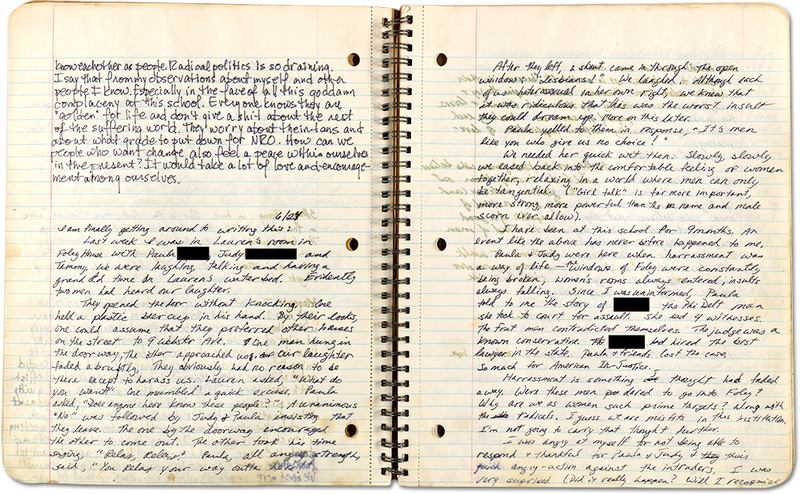
The author of the journal entry reflects on her experience being harassed on campus. She shares that in nine months of being at Dartmouth this is the first time. In contrast, two of her friends share stories from when “harassment was a way of life - the windows of Foley were constantly being broken, women’s rooms always entered, insults always falling.”
-
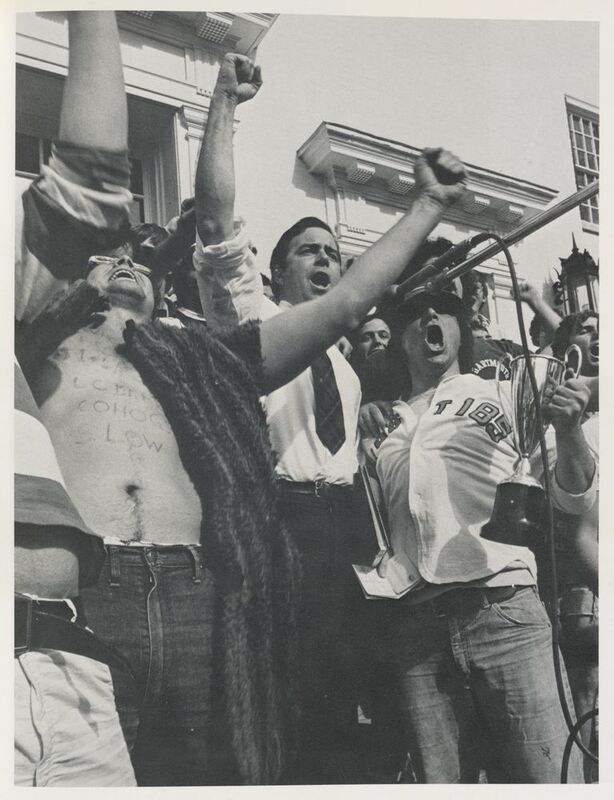
Dean Caroll Brewster celebrates with Theta Delta Chi fraternity brothers after winning the Hums contest, 1975.
-
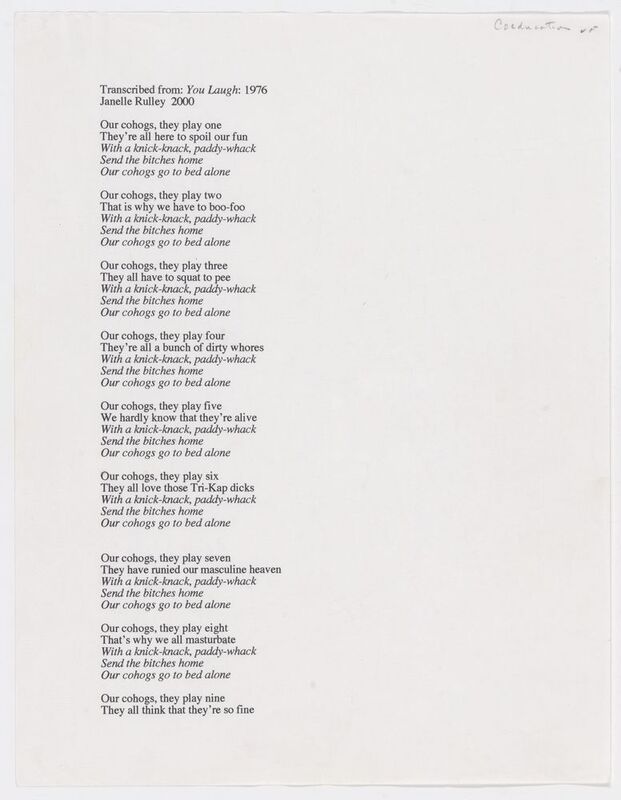
In 1975, at the annual Inter-fraternity Hums contest, “Our Cohogs” was performed by the brothers of Theta Delta Chi to the tune of the nursery rhyme, “This Old Man.” The lyrics are explicit, calling women vulgar names and accusing them of ruining Dartmouth’s “masculine heaven.” A “cohog”, is a combination of the words, “coed” and “quahog”, a type of clam. In this context it is used as a derogatory term for female genitalia. The song was voted most creative and original by Dean of the College, Carroll Brewster.
-
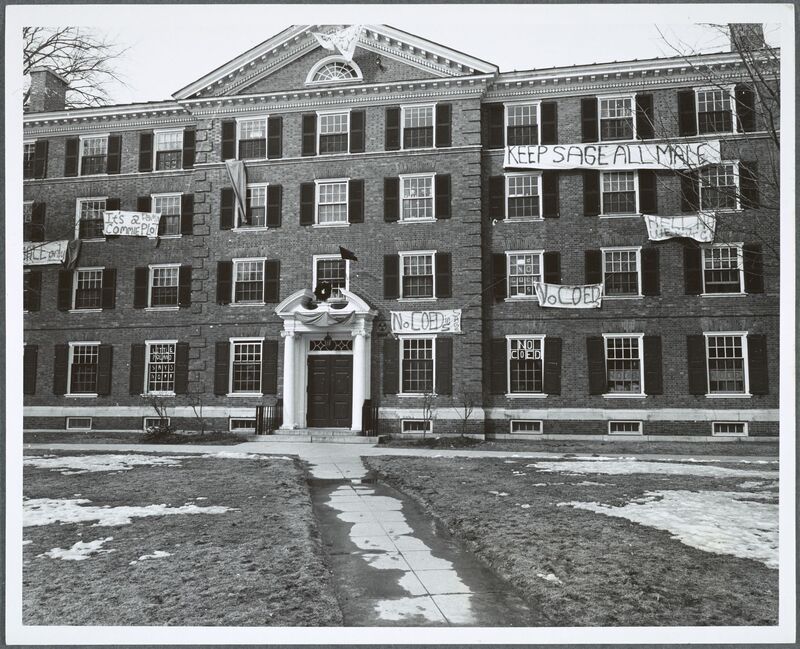
Banners hung from Russell Sage hall by residents opposing the Committee on Student Life's recommendation for the residence to go coed by 1976

























